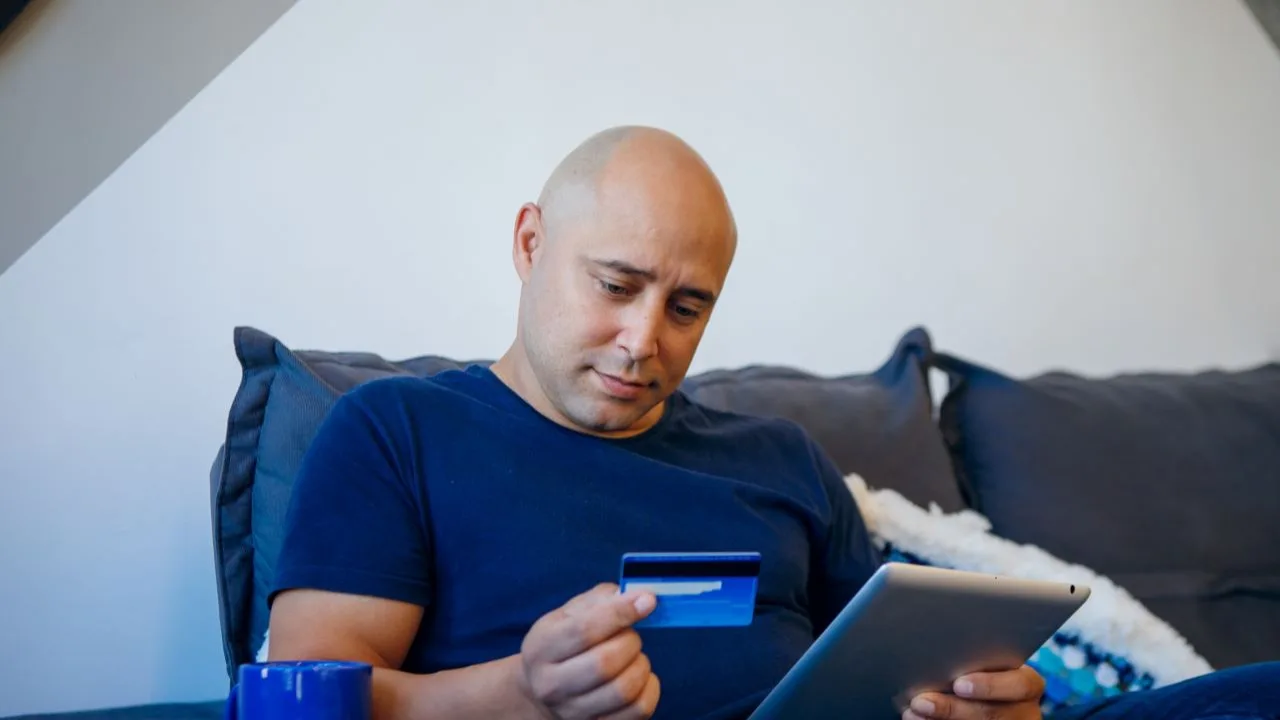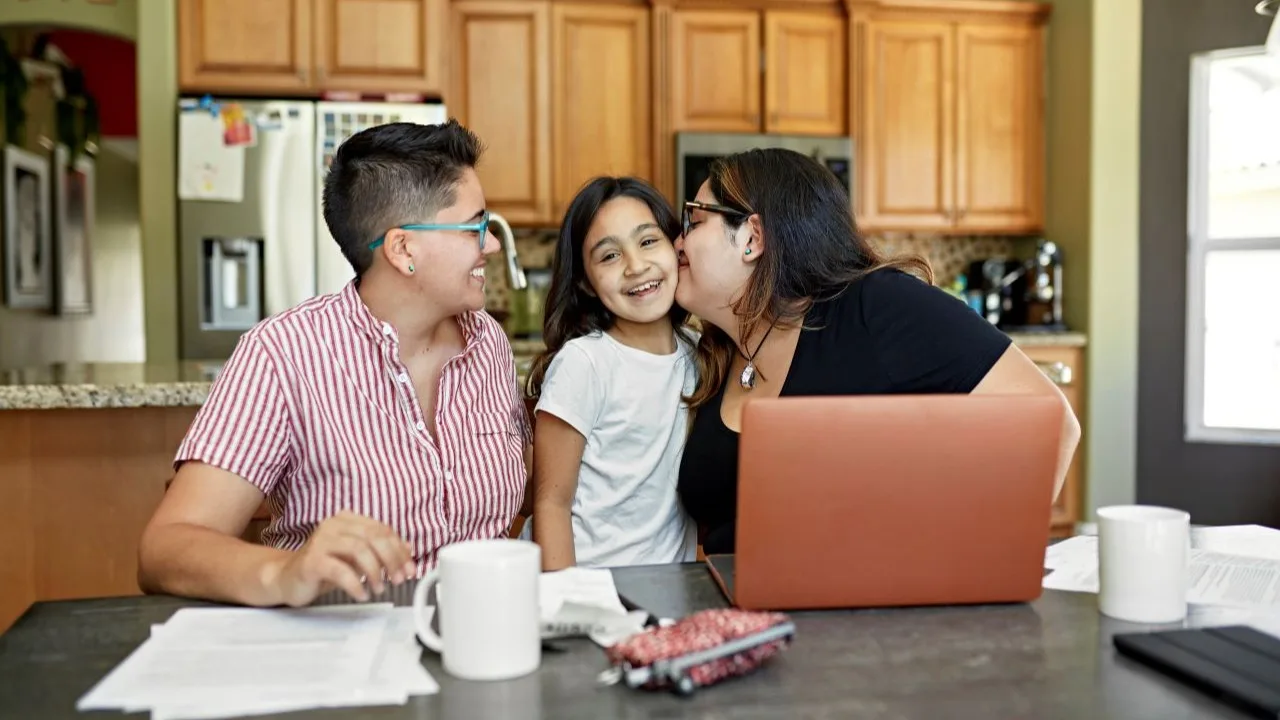
At Achieve, we're committed to providing you with the most accurate, relevant and helpful financial information. While some of our content may include references to products or services we offer, our editorial integrity ensures that our experts’ opinions aren’t influenced by compensation.
Money Tips & Education
What is a secured credit card and how does it work?
Jan 30, 2024
Written by
Reviewed by
Key takeaways:
Secured credit cards can help you build or rebuild your credit history.
A secured credit card requires a deposit to open, but you can get your deposit back later if you maintain your account in good standing.
A secured card can be a stepping stone to a traditional credit card.
A credit card is an important ingredient in most people’s financial recipe. Getting one, and using it responsibly, could help lay the groundwork for a strong credit profile. Having a card in hand, especially if you’re working your way back up from a low point, can give you confidence in your personal finances. It means someone trusts you to spend their money reasonably and pay them back.
Sometimes that trust comes in stages. A secured credit card is the issuer’s way of saying yes to your request for credit, but with safety rails for financial protection. A secured card should set you up for success and be a tool that works for you. We’ll explain how.
Secured credit cards
A secured credit card is one that requires a cash deposit to open. (Unsecured accounts, unlike secured, don't have a deposit requirement.) The required deposit is typically at least $50, but you can make a larger deposit if you want a higher credit limit. Usually, the credit limit on your account is equal to the amount of your deposit. But you won’t be making charges against your deposit. The card issuer holds your deposit as a safeguard. If you use the card, you’ll need to pay the bill each month just like you would with any other credit card.
You can charge, repay, and charge again as often as you like, up to your credit limit. As you make purchases with your secured credit card, the amount of credit available shrinks. You free up more of your limit by making a payment.
The point of using a secured credit card is to build a positive payment history so that you can qualify for credit in the future with fewer strings attached. After a period of responsible use (often six to 12 months), you can apply for a traditional credit card. Once your secured account is paid off, you can ask the issuer to return your deposit and close the account.
Some credit card companies will convert your account to a regular unsecured card and return your deposit automatically after you meet certain conditions. For example, you might need to make six consecutive, on-time monthly payments to trigger the switch.
If you don't repay what you owe, the credit card company can keep your deposit.
Getting and using a secured credit card
There are quite a few secured credit cards. So how do you choose a secured credit card that fits your needs? Start by comparing these features:
Minimum deposit. How much do you need to deposit to open a secured credit card account? Can you add more money later to boost your limit?
Refund policy. What’s the issuer’s process for returning your security deposit? What steps would you need to take, and when?
Fees. This is a big one to watch out for. Secured credit cards can charge activation or application fees, annual fees, monthly fees, and late payment fees. You could also get hit with a foreign transaction fee, a fee for a paper statement, or a fee to replace a lost card. Read over the fee schedule carefully and compare a couple of cards before you apply so you won’t be caught off-guard.
Credit reporting. A secured credit card only helps you build a stronger credit score if the card issuer reports your account activity to the credit bureaus. Equifax, Experian, and TransUnion are the three major credit bureaus that collect information about credit accounts. Make sure the secured cards you are considering do, in fact, report to the credit bureaus.
Added features and benefits. Some secured cards are pretty vanilla, designed just to help you build credit by making purchases and paying them off. But other cards may offer more perks, like cash-back rewards or points on purchases.
Annual percentage rate. The APR on a credit card represents the cost of carrying a balance month to month, spread out over a year. In other words, it’s the interest you’ll pay if you carry a balance. The higher your APR, the more interest you’ll be charged if you don’t pay off your balance each month. (If you pay off your balance before you’re charged interest, the APR doesn’t matter.)
Once you find a card that looks good to you, the next step is applying. A hard credit check may be required, which means the credit card company, with your permission, checks your credit reports and scores using your Social Security number. It's different from a soft credit check. Most secured credit cards are designed for people with lower credit scores, so you might find one that doesn’t require a credit check at all.
If you're approved, you make your initial deposit. Then you can use your new card to build credit.
Here are some simple tips for using a secured credit card to build credit:
Pay your bill on time every month.
Limit what you spend to an amount you can afford to fully pay off when the bill comes, so you don't get hit with interest charges or pile up debt.
Protect your card information and don't let anyone else use your card.
Pro tip: Set up one small recurring bill to be automatically paid by your credit card, and set up your credit card to be automatically paid from your bank account.
Getting a secured credit card could put you on the path to building or rebuilding credit. But it can take time to see results, even when you're doing all the right things. So if you're not seeing your score jump right away, remember to be patient.
Secured vs. unsecured credit cards
You could think of unsecured credit cards (the traditional kind that don’t require a deposit) as a tool for maintaining good credit, and a secured card as a tool for establishing it. Here's a quick rundown of other factors that make secured and unsecured cards different from one another.
| Secured credit card | Traditional credit card |
|---|---|---|
Approval | Easier | Harder |
Credit limit | Lower | Higher |
Rewards and benefits | Modest or none | Many options |
Low APR promotions | Rare | Common |
Annual fee | Sometimes | Sometimes |
Can show up on your credit reports | Yes | Yes |
If you're starting off with a secured credit card, you might want to transition to an unsecured card at some point. For example, if you hope to rack up some airline miles or hotel points, it could make sense to try for a travel rewards card down the line.
The best time to make the switch is when you've built up your credit enough to qualify for an unsecured credit card. Credit card companies usually don't tell you exactly what credit score you need to get approved. Instead, they might say that a particular card is designed for people with good credit or excellent credit. You can keep track of your scores using a free credit monitoring service.
Related: Debt consolidation loan for bad credit
Benefits of secured credit cards
The main benefit of a secured credit card is that it can help you build credit for the first time, or rebuild credit if your score isn't as high as you'd like it to be.
Good credit matters if you want to get a loan, rent an apartment, buy a car, sign up for utility services in your name, or even qualify for some jobs. The better your score, the better the impression you make on lenders, or anyone else who needs to check your credit.
In addition to the credit-building element, finding a card that offers rewards on purchases or has no annual fee is a nice bonus. If you can get back 2% on your purchases, for example, that's a nice way to lower the cost of the things you buy.
Lastly, secured credit cards can be easier to qualify for than other types of credit. You just have to put up the deposit and you can be on your way to building or rebuilding your credit history.
What's next
Check your bank accounts and decide how much money you could put up for a deposit on a secured credit card.
Compare secured credit card offers to get a sense for which ones have the most benefits and the fewest fees.
Consider signing up for free credit monitoring services to track your score changes from month to month.
Author Information
Written by
Rebecca is a senior contributing writer and debt expert. She's a Certified Educator in Personal Finance and a banking expert for Forbes Advisor. In addition to writing for online publications, Rebecca owns a personal finance website dedicated to teaching women how to take control of their money.
Reviewed by
James is a financial editor for Achieve. He has been an editor for The Ascent (The Motley Fool) and was the arts editor at The Valley Advocate newspaper in Western Massachusetts for many years. He holds an MFA from the University of Massachusetts Amherst and an MA from Hollins University. His book Krakatoa Picnic came out in 2017.
Frequently asked questions
Are there any risks in using a secured credit card?
The biggest risk of using a secured credit card is losing your security deposit. However, that only happens if you stop paying and default on the card.
Can I get a secured credit card after bankruptcy?
It's possible to qualify for a secured credit card after bankruptcy, even if you have a poor credit score. In fact, getting a secured credit card is one of the best ways to start recovering your score after bankruptcy.
What's the credit limit on a secured card?
The credit limit on a secured card is usually whatever you offer as a deposit. So if you deposit $200, you have a $200 credit limit. Deposit minimums and maximums can vary by card.
Related Articles
Some credit checks affect your score, but others don’t, even from the same lender. We’ll explain when and why credit checks can affect your credit.
Myth-busting: you don’t need to carry a credit card balance to have good credit! Learn how credit utilization affects credit scores.
Ready to take control of your money? Learn what a budget can do for you and how to make one.


